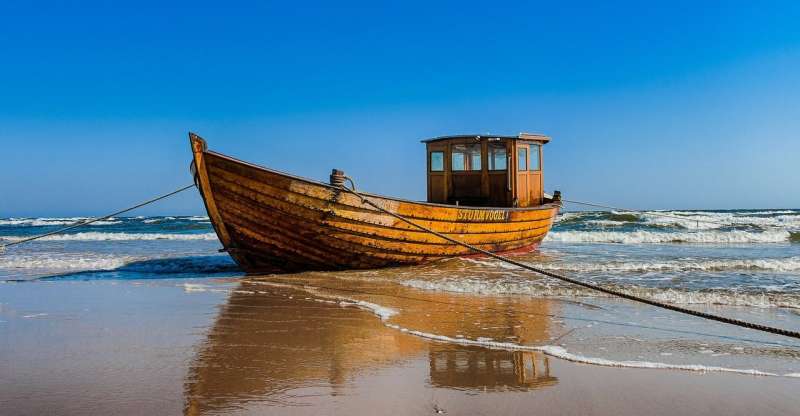Credit: CC0 Public Domain
A Mexican governmental agency is considering reducing the protected area for endangered vaquita porpoises in the northern Gulf of California as their number there dwindles below an estimated 10.
The action comes months after a fisherman's death prompted accusations that the Mexican federal government values the lives of endangered marine animals and the interests of foreign environmentalists above its own citizens.
The government's most recent analysis seems to accept the probability that the tiny porpoise species can never return to its original range of habitat.
For years, a battle has raged between environmental groups and San Felipe fishermen seeking a big payday off the totoaba, a fish whose capture often results in the by-catch of the vaquita.
The inter-agency group of Mexican federal officials met Friday to consider recommending opening the Gulf of California to legal fishing of the totoaba, which was also placed on Mexico's endangered species list in 1975. The animal's dried swim bladder is considered a delicacy in China and can yield thousands of dollars.
"This agenda is focused on maintaining the status quo and abandoning the vaquita marina and returning to fishing for totoaba," said Alex Olivera, the Mexico representative for the Center for Biological Diversity. "It is disappointing that this administration has ruined everything that had been done" in a decade-long fight to save the tiny porpoise.
The head of Mexico's environmental ministry said once the protected area for the vaquita is reduced, the agency would consider lifting the ban on gillnets in some of the Gulf of California, also known as the Sea of Cortez.
"The possibility of modifying the area of prohibition of all gillnets is being studied," said María Luisa Albores González, the head of Secretariat of Environment and Natural Resources (SEMARNAT, for its initials in Spanish). "There are sufficient technical studies that point to a possible reduction of the polygon (protected area) according to the recent distribution of the vaquita porpoise in the area."
In January, Mario García Toledo, 56, died and another Mexican fisherman was badly injured off the Baja California coast when the fishermen's small panga boat crashed into a larger vessel used by the conservationist group Sea Shepherd. The crash was a tipping point in escalating protests by fishermen who want to be allowed to use banned gillnets in the Gulf of California, the only place the vaquita is found.
An attorney for the family of the deceased fisherman said he is planning a wrongful death lawsuit against Sea Shepherd, contending the environmental group's vessel intentionally rammed the fisherman's smaller boat.
"They've been getting away with this criminal activity for years," said Jesus Cruz, the attorney for the family of Toledo.
In a statement, officials with Sea Shepherd said environmentalists aboard their vessel, the Farley Mowat, were trying to remove an illegal net from the protected area when a group of people on small fishing boats launched a "violent attack" that included throwing Molotov cocktails.
An interagency task force, led by Mexico's SEMARNAT, is examining several different proposed policy changes, including the reduction of the protection area for the vaquita. Currently, the protected zone starts around the Colorado river delta and extends south past the fishing town of San Felipe to north of Puerto Peñasco.
The agency plans to make the group's recommendations public on March 26, after which Mexico's President Andrés Manuel López Obrador can decide whether or not to accept the changes in policy.
©2021 The San Diego Union-Tribune
Distributed by Tribune Content Agency, LLC.
























